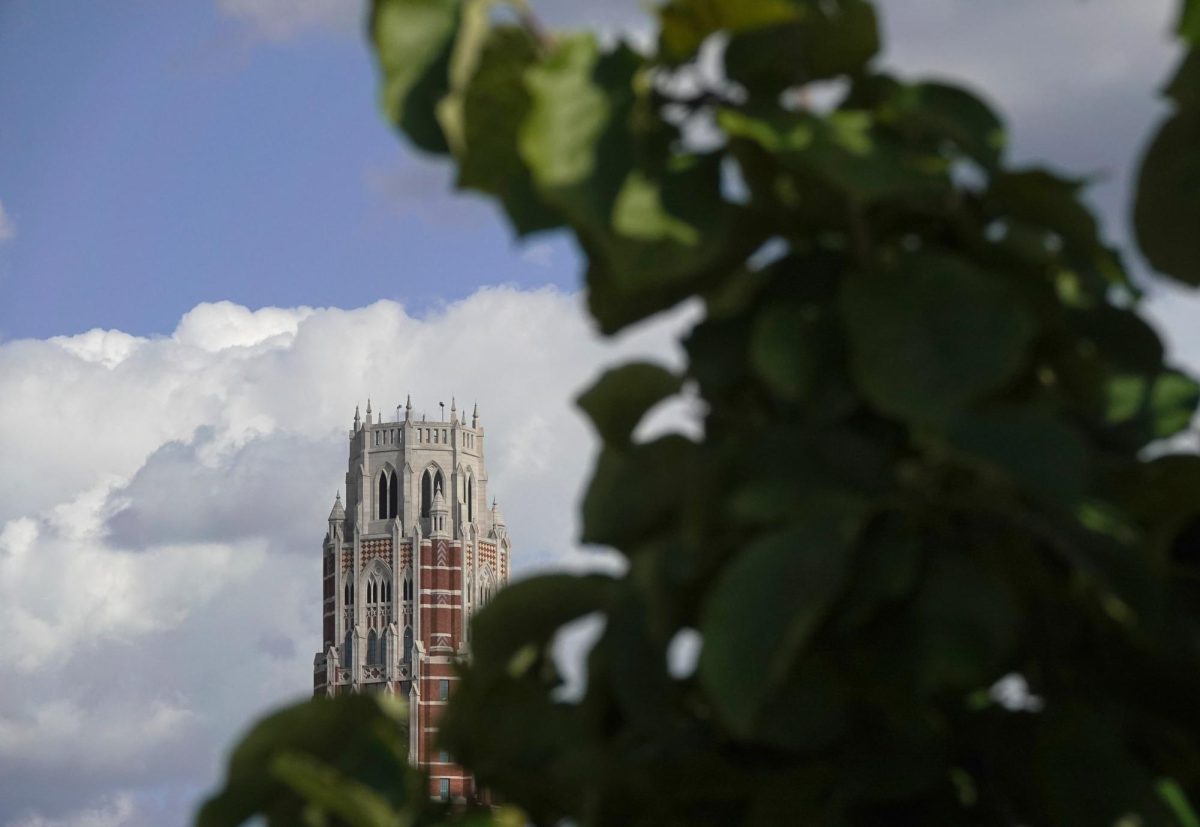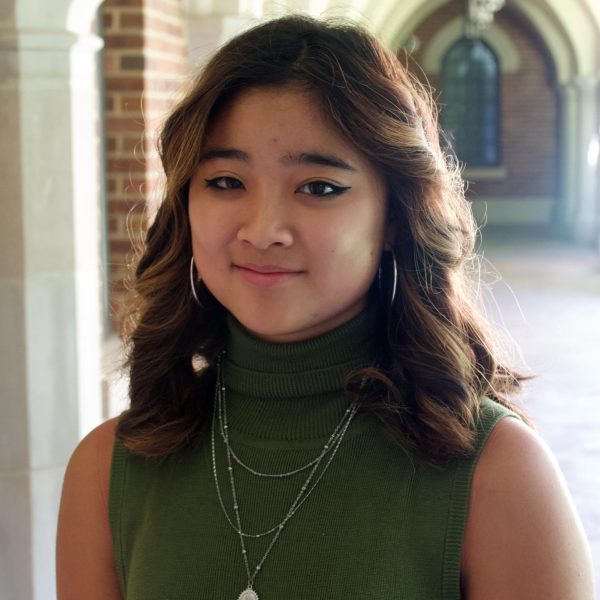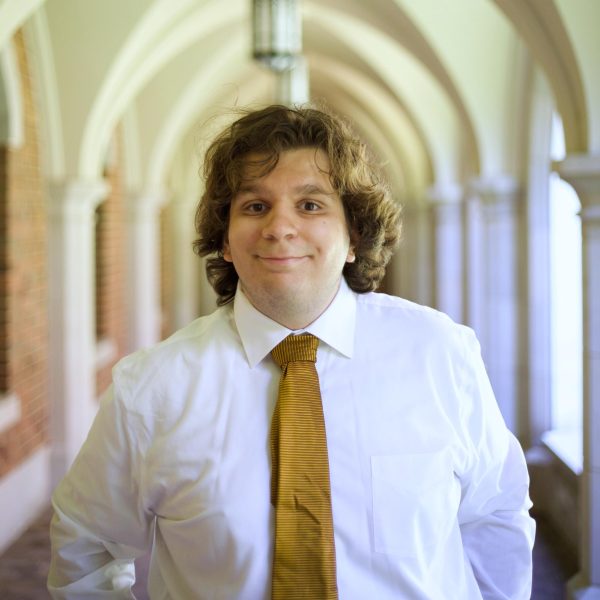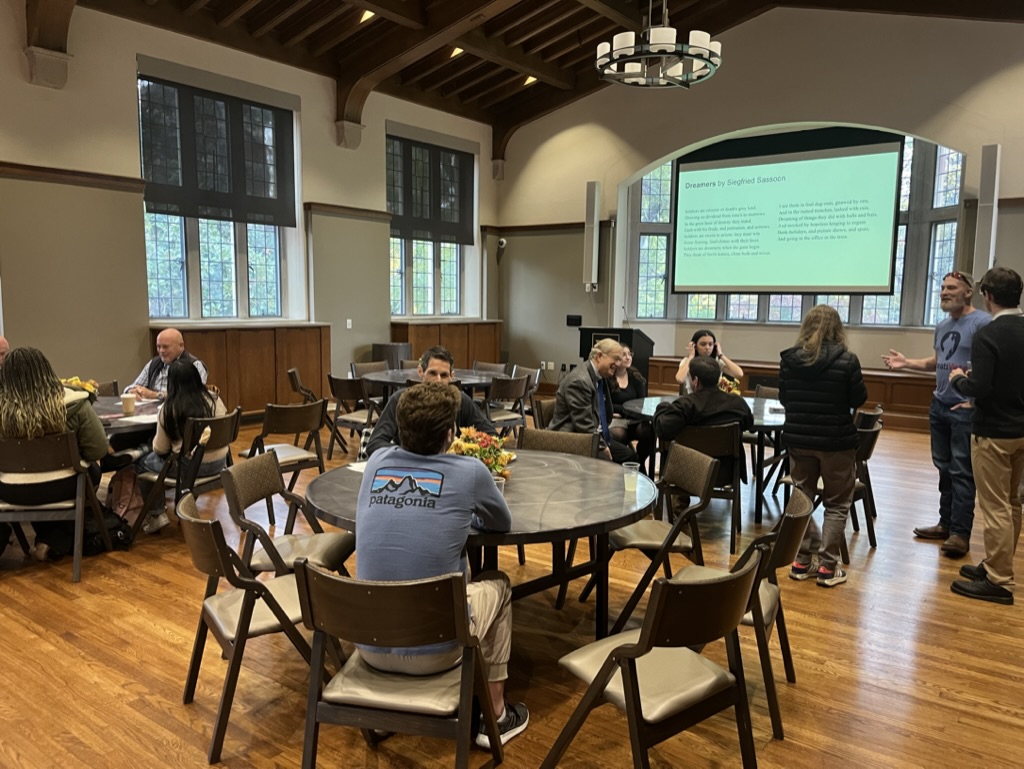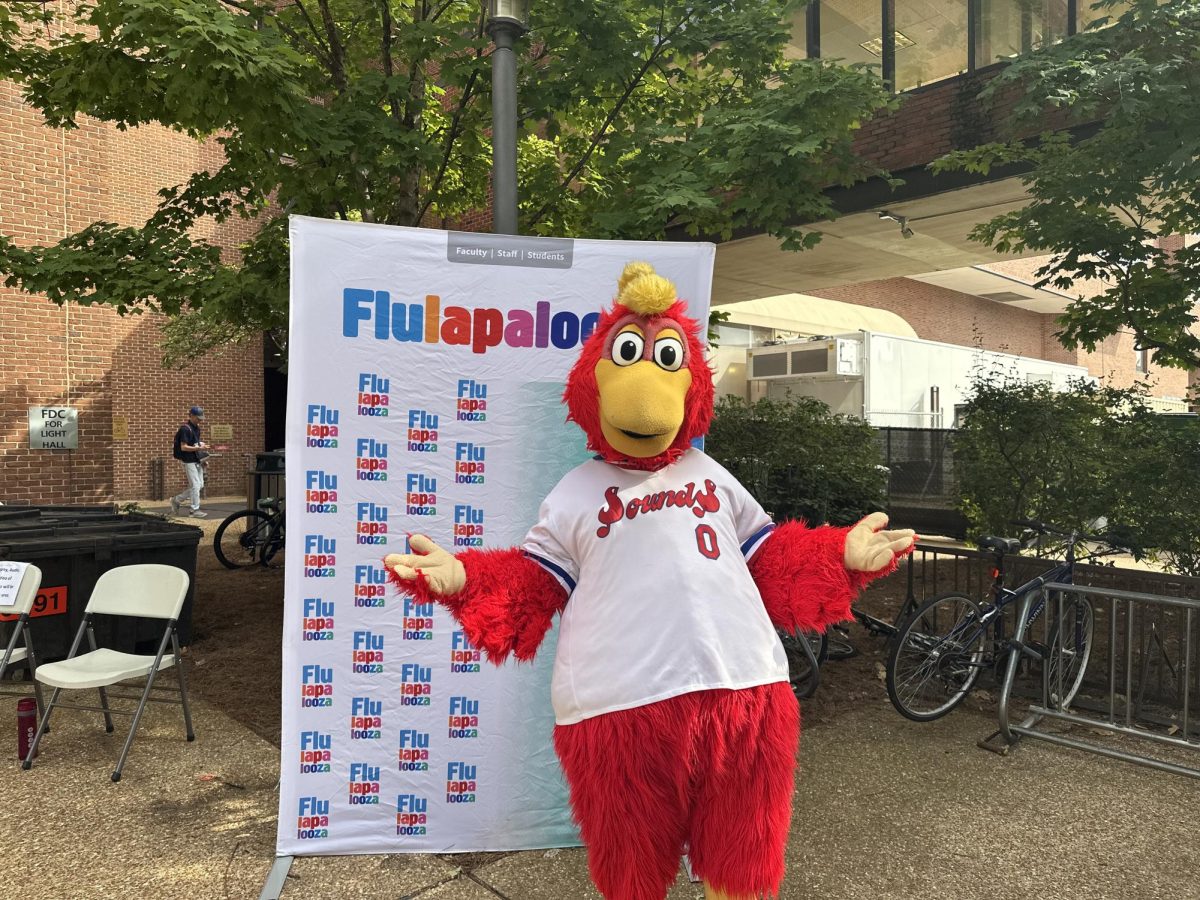Juniors Lena Kalandijan, Samantha Mitike and Max Perry were selected as three of 100 Obama-Chesky scholars for the program’s 2024-26 cohort. Last year, one Vanderbilt student was named an Obama-Chesky scholar. The scholarship recognizes students based on their past experiences in community involvement and service work, and it was founded by former President Barack Obama and Brian Chesky — co-founder and CEO of Airbnb.
The Obama-Chesky Scholarship for Public Service, also known as the Voyager Scholarship, aims to help third-year undergraduate students launch careers in public service through two years of leadership development. Scholars receive up to $50,000 in financial aid, as well as a $10,000 stipend and free Airbnb housing for their Summer Voyage impact project. The program also offers engagement opportunities with fellow Voyagers and scholarship alumni.
Kalandijan, a human and organizational development major with minors in business and sociology, said she found her service calling through education and violence prevention. Her interest in these areas was sparked by the 2018 mass shooting in her hometown of Parkland, Florida.
“It [the shooting] had a really big impact on everybody in the community,” Kalandijan said. “Watching the movement grow to be a national gun violence prevention movement I really was able to see how communities can affect change. I wanted to be a part of that as well.”
In high school, Kalandijan became involved with Sandy Hook Promise, a violence prevention nonprofit founded by the parents of the Sandy Hook Elementary school shooting victims. She worked to plan and implement holistic education programs designed to combat gun violence in schools.
“I found that we could create this collective generational shift in violence prevention, and that’s where I really found my niche,” Kalandijan said. “Things that we said would directly translate to what was put into programs and what would be put in the organization’s goals for that year, or the next five years. I really felt like I had a say in creating change.”
Kalandijan believes the HOD program has been the most impactful part of her Vanderbilt experience as learning about organizations and how they are structured relates to her career aspirations in public service.
“It’s really taught me to think systemically and think about all the levels in society at which a problem is born and a solution can be implemented,” Kalandijan said.
Kalandijan said she hopes to pursue a career combining public service and business.
“I really see myself going into a career where I can bring my values and impact-oriented mindset to create changes in the way that people run businesses,” Kalandijan said. “In the long term, I hope to maybe work for a philanthropic foundation and do impact investment into communities that need access to capital.”
Mitike — double majoring in HOD and medicine, health and society — said she developed an interest in service work when the COVID-19 pandemic hit and affected her hometown of Duluth, Georgia. She committed to tutoring students who didn’t have access to technology and to helping run food drives.
“I took initiative with a nonprofit that was started in my county to give back to less fortunate people in my neighborhood,” Mitike said. “Through that, I really realized my passion for service.”
On campus, Mitike is involved in Delta Sigma Pi, a professional business fraternity, where she said she learned a lot about various industries. Mitike also expressed appreciation for the guidance of HOD professor Heather Lefkowitz.
“[The HOD program] just allowed me to learn a lot of different sectors and career fields that I could use to advocate or fight for issues that I’m passionate about,” Mitike said. “[Professor Lefkowitz] made me realize that there’s not just one route to take in life or post-grad.”
For her summer project, Mitike is interested in traveling to Asia and Africa to research health accessibility in LGBTQ+ communities.
“I’m looking to research how accessibility differs, [especially] in response to political and social climates around queer people in different parts of the world,” Mitike said.
Regarding her professional path, Mitike said she is open to exploring but is particularly interested in bridging the fields of business and medicine.
“I love working hand in hand with clients, and I love seeing how my work impacts people directly,” Mitike said. “I’m really interested in taking the healthcare consulting route or something within the marketing and advertising field where I can create content to help less fortunate communities.”
Perry — a double major in political science and law, history and society — said he found a passion for public service through education and advocacy against antisemitism. Growing up in northern Kentucky, he experienced a number of antisemitic incidents, which prompted him to take action against these issues.
“I realized that the tool to combat this indifference — and by extension, this prejudice — was to educate,” Perry said. “I learned that my path in life was to teach people about antisemitism and about Holocaust education while teaching about civics and being good neighbors and community members.”
At Vanderbilt, Perry works as a co-chair of the Holocaust Lecture Series and serves on the Dialogue Vanderbilt student advisory board to promote freedom of expression as it relates to education on campus.
“Within these roles, I’ve really been able to expand upon the work that I did in high school in terms of educating people about the Holocaust [and] combating antisemitism, but doing so directly at Vanderbilt, Middle Tennessee, Nashville and beyond,” Perry said.
For his summer project, Perry said he hopes to travel to Europe and visit Holocaust sites to better educate himself to teach others about the events.
“I’m interested in delving deeper into civil discourse, Holocaust education and expanding access to post-secondary education for nontraditional students,” Perry said. “It’s going to be a learning experience to expand U.S. [education’s] scope of how the Holocaust is [taught] and maybe transfer some knowledge.”
All three scholars expressed an interest in addressing injustice in their communities and the world.
“I’ve learned it is our purpose in life to contribute to the world in whatever way we can,” Perry said. “It’s not only the right thing to do to try to contribute to community service and public service, but we all should do it.”

